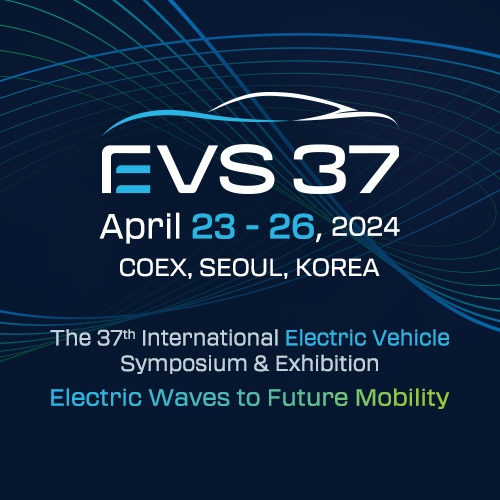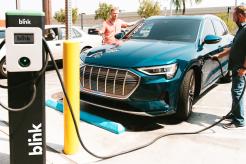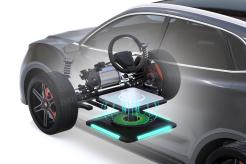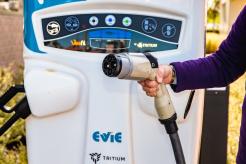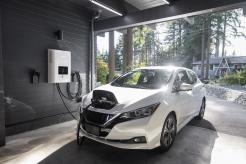In logistics, final-mile delivery is the last step in a product’s trip and ends with the product’s delivery into the customer’s hands. As a DispatchTrack article points out, having an “on-time, speedy delivery is crucial in…a great delivery experience” for the customer. For that reason, many of the world’s top logistics brands have leveraged EV fleets for their final-mile delivery vehicles.
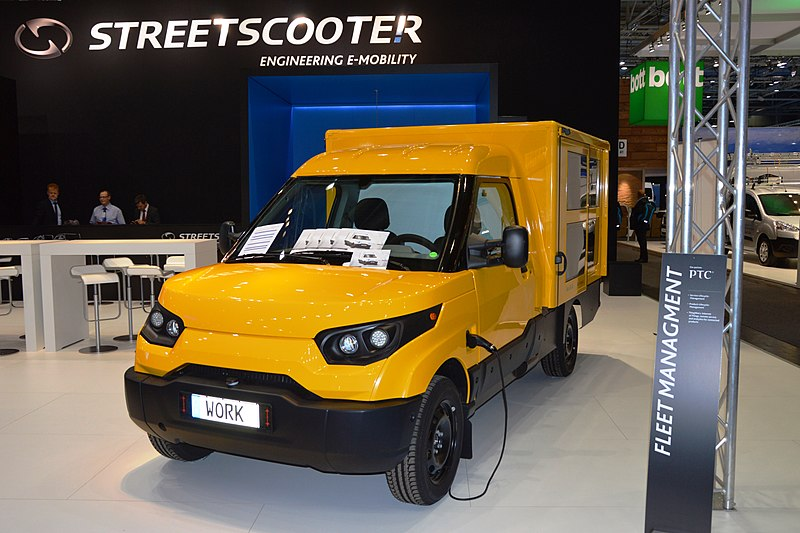
Image via Wikimedia Commons
In urban areas, the fossil fuel emissions of traditional delivery vehicles can stink up a neighborhood, turning a great delivery experience into a major fail. In rural areas, where final-mile delivery drivers have long distances to cover between customers, fuel economy is a must to make these deliveries pay off.
Electric vehicles solve both problems. Since they’re no-emissions vehicles, they’re ideal for city deliveries. And, the cost to fuel an EV is less than half the cost it takes to fuel a traditional gas or diesel vehicle, as a University of Michigan study shows. These top commercial brands have taken the lead in leveraging the benefits of EVs for their final-mile delivery fleets.
1. FedEx
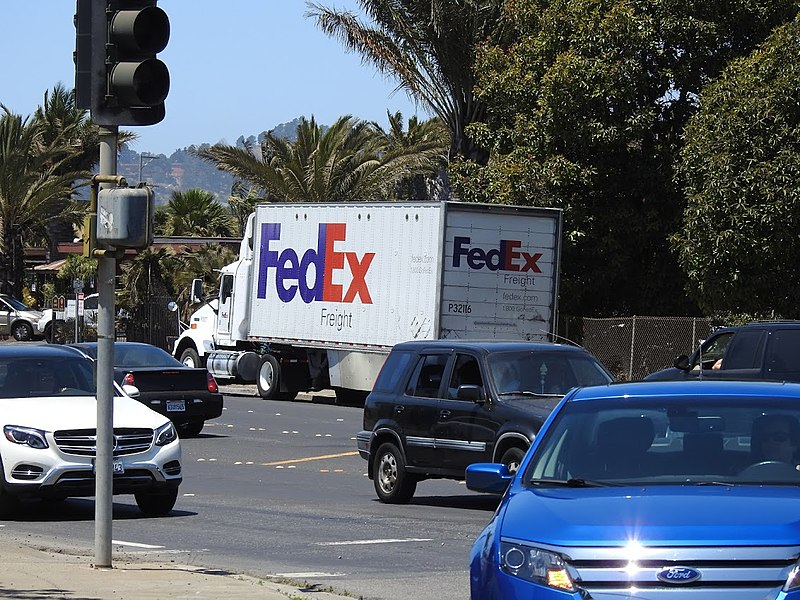
Image via Wikimedia Commons
FedEx began introducing EVs to its final-mile logistics fleets in June 2022 when they received 150 BrightDrop EV delivery vehicles. The company’s partnership with BrightDrop, a startup funded by General Motors, looks to continue over the long run since FedEx aims to solidify its commitment to convert its entire pickup and delivery fleet to EVs by 2040.
With a range of 250 miles, the new FedEx EVs should suit both rural and urban deliveries without running out of fuel, adding to the company’s reputation for dependable service. And, at half the price of fueling an internal combustion vehicle, the new fleet vehicles should save FedEx plenty of money as they phase 2,500 of them in during the next few years.
2. DHL
A logistics leader worldwide, DHL has taken the next step toward electrification of its entire fleet, including air freight vehicles. With its March 2022 deployment of 270 final-mile delivery vans, this commercial freight company proved its commitment to sustainability in every aspect of its business. Its existing fleet of 50 EV vans, plus its 11,000 electric delivery scooters and the new final-mile fleet vehicles, add up to nearly 20% of its fleet.
3. Amazon
With 5,000 Rivian delivery vans already in its fleet, Amazon upped the ante when it doubled its final-mile electric delivery vehicles (EDVs) to 10,000 in October 2023. With the vans in use in 1,800 cities across the US, this move made the e-commerce and delivery company “one of the largest fleets of EDVs in the nation,” as Electrek’s Jennifer Mossalgue states. These custom-designed vehicles have a range of 150 miles, making them a great fit for both urban and suburban deliveries.
The new vans represent only a fraction of Amazon’s plans to electrify its fleets. The company has already begun to electrify its European final-mile fleets and has set a goal to deploy “at least 100,000” EV delivery vans by 2030. In addition, company leaders have partnered with Volvo to replace its diesel semi-truck fleet with heavy-duty EV trucks.
Its efforts seem to have worked. As Mossalgue points out, Amazon has reduced its carbon emissions by 0.4% in 2022, with its ultimate goal to achieve net-zero emissions by 2040.
4. Walmart
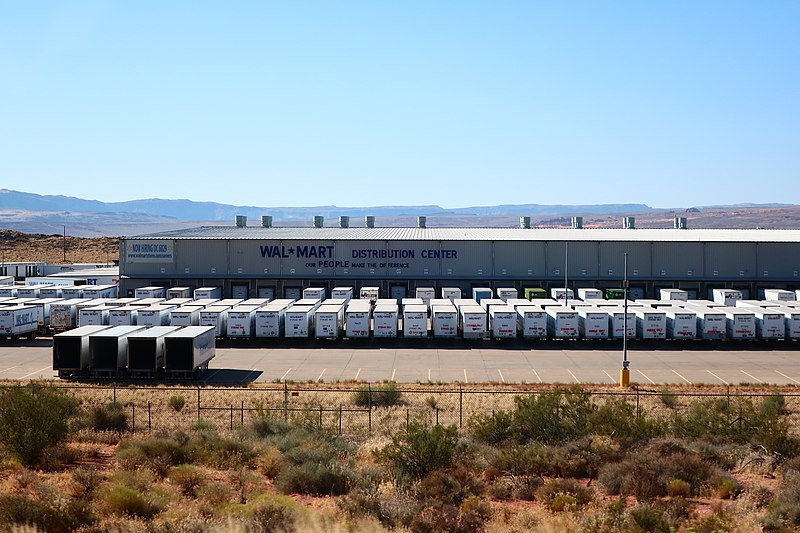
Image via Wikimedia Commons
2022 seemed to be the year for more global delivery companies than ever before to integrate EVs into their last-mile delivery fleets. Not wanting to play second-fiddle to its major competitor, Amazon, Walmart announced that it had augmented its fleet with 4,500 Canoo EV vans in July of that year.
In line with its sustainability initiative to achieve zero-emission status by 2040, Walmart’s move signaled that it was well on its way to reaching that goal since it took the option to buy as many as 10,000 electric delivery vans.
The vans have an efficient configuration that integrates their battery module with the motors and other “critical driving components,” as the Walmart announcement noted. With more “usable interior space,” these vans provide more room for cargo without sacrificing drivability. With improved driver ergonomics and a panoramic front window, drivers will have better visibility and comfort than ever before.
5. Domino’s Pizza
In an effort to lower its corporate carbon emissions and attract more quality delivery drivers, Domino’s Pizza purchased 800 Chevrolet Bolt EVs to use in deliveries nationwide, according to CNBC’s Ian Thomas. This move solidifies its promise to achieve net-zero emissions by 2050 and augments its existing fleet of e-bikes and electricity-powered scooters.
With its impressive 259-mile range, Domino’s new EV fleet should work well for even suburban and rural deliveries. Even better, the vehicles require less maintenance than the company’s internal combustion models and will significantly lower fueling costs.
Since driver recruitment in a tight labor market is at a low ebb, Domino’s hopes these cars will attract employees who might not want to use their own vehicles for deliveries. To protect themselves from lawsuits, delivery drivers must purchase commercial auto insurance — an expense too great for many delivery drivers to afford.
In addition, drivers who log all those miles in their own vehicles will see a large chunk of their salary going into fueling and maintenance costs. Having a company car to drive takes insurance and maintenance costs out of the equation.
6. Club Car
Club Car, one of the nation’s top golf cart manufacturers, began manufacturing electric mini-pickup trucks in March 2023, Electrek’s Peter Johnson reports. Equipped with a dump truck bed for easy loading and unloading, these vehicles should help cut costs for last-mile delivery companies.
Street-legal yet small enough to maneuver around narrow streets, the electric mini-pickups measure only 143 inches long and 54 inches wide. Their top speed of 25 miles per hour makes them perfect for urban last-mile deliveries. Despite their size, they sport three-point seatbelts, mirrors, a backup camera, and everything else they need to travel on urban streets.
7. Penske
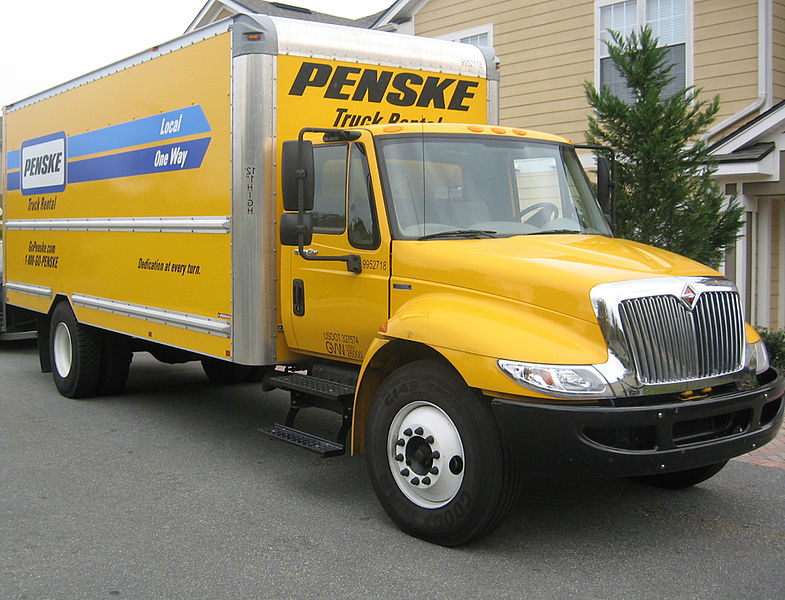
Image via Wikimedia Commons
Partnering with Ford, Penske recently introduced a line of EV cargo vans into their fleet. These Ford E-transit vans became the first light-duty electric trucks the company made available to its leasing and rental customers.
The first battery electric vehicles (BEVs) manufactured by a prominent North American automaker, these cargo vans can haul up to a 3,800-pound payload for a 100-mile distance, making them the perfect choice for companies that want a sustainable solution for their last-mile deliveries.
Learn More About Commercial EV Applications at the EV Charging Summit
If you’re considering leveraging EV fleets for final-mile deliveries, you’ll have the opportunity to network with some of the finest minds in the EV charging industry at the next EV Charging Summit event.
With news about the latest technologies, monetization strategies, and an appearance by Penske’s Vice President of Facilities, Sean Yentsch, you’ll emerge with more knowledge to help your delivery company thrive through electrification. Reserve your spot today!

